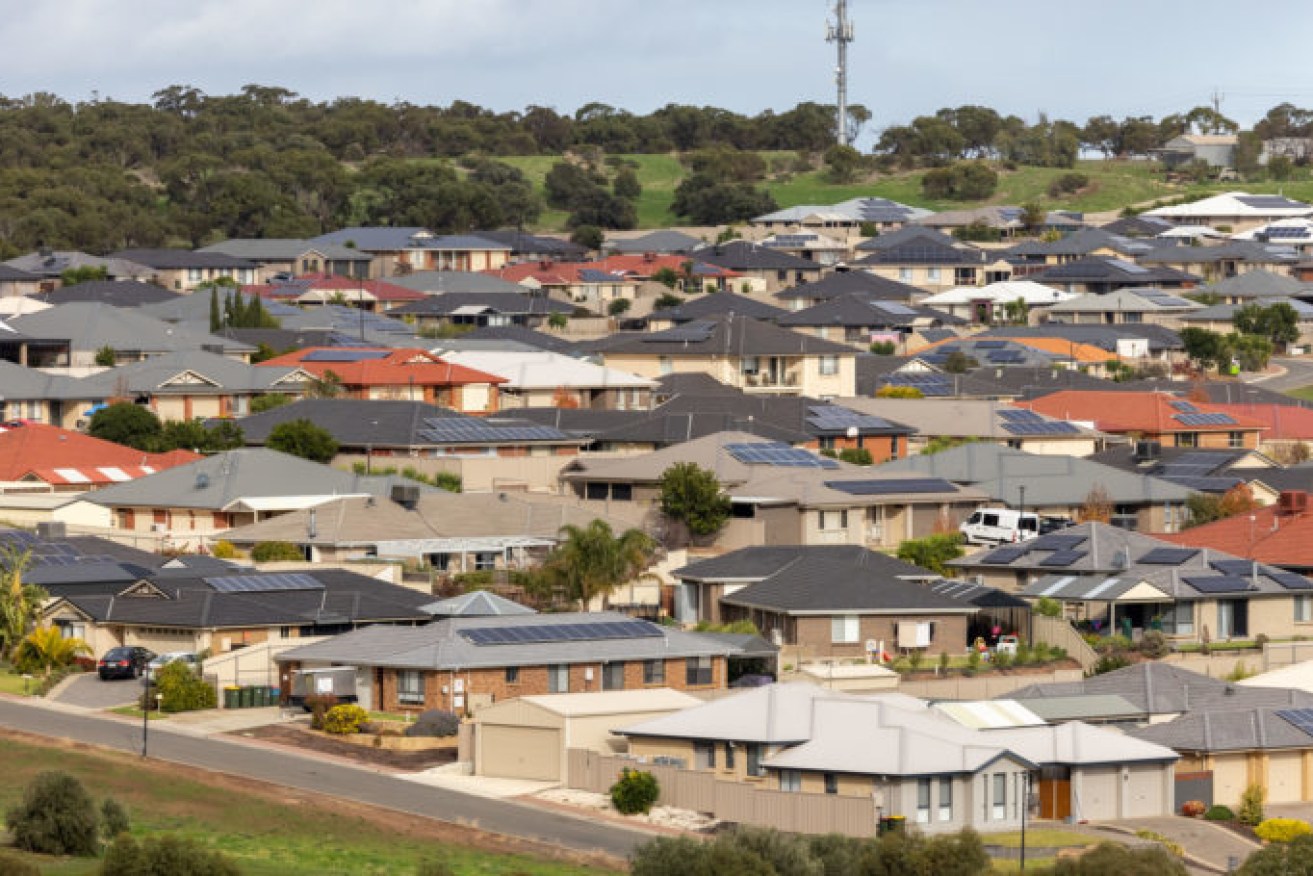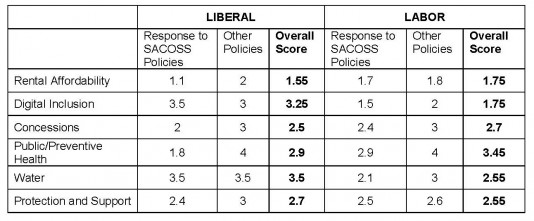Major party policies do ‘nowhere near enough’ for struggling renters
Neither the Liberal or Labor parties have an adequate plan to tackle South Australia’s rental affordability crisis and both fall short on public housing investment this election, says the state’s community services peak body.


Photo: Tony Lewis/InDaily
The South Australian Council of Social Service today released its election report card assessing the major and minor parties’ plans to address rental affordability, digital inclusion, concessions, water access, and protection and support measures.
The election report is based on an “assessment of overall policy” and “responses to policies proposed by SACOSS”.
Scored out of five, both Labor and the Liberals fared worst on rental affordability, with the Opposition rated at just 1.75 and the Government even worse at 1.55.

SACOSS’s 2022 election report card.
Labor over the weekend pledged $182 million towards public housing over four years to build 400 new homes across the state and upgrade a further 350 houses to tackle the state’s public housing wait list.
The Liberals, as part of the “Our Housing Future” strategy, have committed $452 million between 2020 to 2030 towards “new social and affordable housing supply”.
But both promises fall well short of SACOSS’s pre-election call for a $1.4 billion investment over four years to increase public housing stock, equivalent to a similar $5.3 billion social housing package from the Victorian Government.
SACOSS CEO Ross Womersley said whoever wins the state election next week needs to focus more on rental affordability.
“On average, renters earn less than homeowners and are more likely to struggle with housing affordability, and in our assessment, there is nowhere near enough help coming from the major parties’ election promises,” he said.
“The Liberal Party can claim credit for stopping the long-term decline in the stock of public housing, and helped to get some people into home ownership. But there’s no plan there to build more public housing.
“Labor has conceded it made the mistake of disinvesting in public housing previously and has come to the election finally promising some critical new real investment.
“But frankly, given the size of the crisis we face we will need much, much more to shorten the waiting list and have an impact on supply in the broader rental market.”
The Real Estate Institute of Australia’s Real Estate Market Facts report for the September quarter last year found Adelaide has the least accessible rental market of any Australian capital city, with a “rented dwelling vacancy rate” of just 0.6 per cent.
From December 2020 to December 2021, rents in South Australia increased by 7.2 per cent – more than double the general inflation rate – according to SACOSS’s most recent cost of living report.
That analysis also found that the share of social housing dwellings in Adelaide’s housing market has declined from 9.9 per cent in 2000 to just 6.7 per cent in 2021.
The minor parties fared far better on SACOSS’s report card, with the Greens supporting all ten of SACOSS’s pre-election proposals while SA Best got a 7.5 out of ten rating. The Greens’ platform includes a pledge to build 40,000 public homes over four years.
Elsewhere, Labor did best on public and preventative health measures (3.45 out of 5) compared to the Liberal Party’s 2.9, while digital inclusion was the best-scoring measure for the Government at 3.25, compared to Labor’s 1.75.
The Liberals also scored wins on regional and remote water access and protection and support, while Labor came out on top with their pledges on concessions.
“We recognised the good work being done by the government in developing a digital inclusion strategy and in moving to address chronic problems of water supply in remote communities,” Womersley said.
“For Labor, we recognised their work in preserving and promising to boost the Health Performance Council as a key body for monitoring and improving the health system, and we particularly welcome their commitment to fund a voice for users of the health system.
“We thank the parties for their comprehensive responses to SACOSS’ policy platform, and we were pleased to see a few surprises in the detail.”




